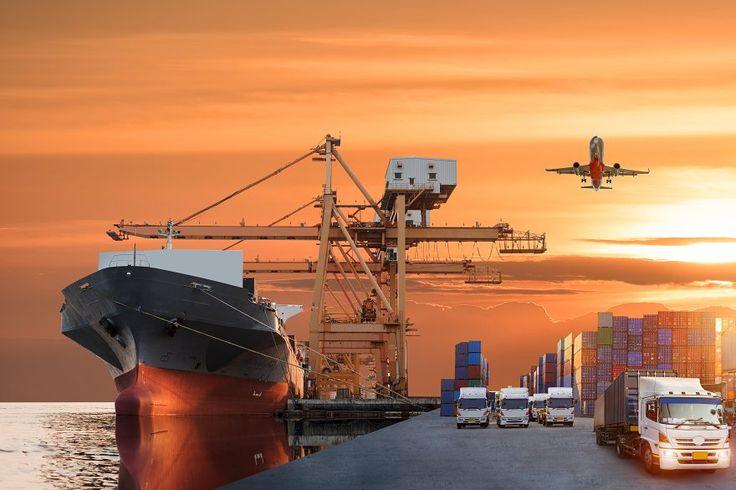In today’s fast-paced, demand-driven economy, efficient logistics can be the difference between operational excellence and missed opportunities. Whether you're managing a delivery company, a construction fleet, or a public transportation system, optimizing fleet logistics support is no longer optional—it's essential. But how can fleet logistics support improve operations in tangible ways?
From route optimization and fuel efficiency to real-time tracking and predictive maintenance, robust logistics support unlocks a wide range of strategic advantages. Let’s explore the vital role fleet logistics support plays in operational success, and how businesses can leverage it for competitive advantage.
What Is Fleet Logistics Support?
Fleet logistics support refers to the systems, technologies, personnel, and processes that help manage and coordinate vehicles used in operations. This can include managing delivery schedules, vehicle maintenance, fuel usage, route planning, and driver performance.
At its core, fleet logistics support is about maximizing the efficiency, safety, and cost-effectiveness of fleet-based operations.
1. Streamlining Operational Efficiency
One of the most immediate benefits of strong fleet logistics support is improved efficiency. By utilizing advanced telematics, route optimization software, and real-time data analysis, businesses can:
-
Reduce idle time
-
Avoid traffic delays
-
Plan the shortest and most fuel-efficient routes
-
Ensure on-time deliveries and service appointments
For instance, GPS-enabled tracking systems allow dispatchers to monitor vehicles in real time and make adjustments based on current road conditions. This flexibility is key to avoiding delays and ensuring customer satisfaction.
2. Enhancing Predictive Maintenance
Unexpected vehicle breakdowns can severely disrupt operations. Fleet logistics support leverages predictive analytics and regular maintenance scheduling to reduce such incidents.
Modern fleet management systems can track vehicle performance and automatically flag potential issues before they become critical. This not only extends the life of the vehicles but also minimizes downtime and repair costs.
Imagine knowing in advance that a vehicle’s brake system will need servicing in two weeks. That kind of foresight lets managers plan maintenance during off-peak hours, avoiding costly disruptions.
3. Cost Reduction and Fuel Management
Fuel expenses are among the largest operational costs for any fleet. Effective logistics support helps monitor fuel consumption in real-time, offering insights into driver behavior, route efficiency, and vehicle health.
Fleet operators can use this data to:
-
Identify and eliminate fuel-wasting habits such as speeding or excessive idling
-
Promote fuel-efficient driving practices
-
Choose optimal refueling times and locations
Together, these small savings add up—resulting in significant cost reductions over time.
4. Improving Driver Performance and Safety
Drivers are the lifeblood of any fleet operation. With the right logistics support tools in place, companies can assess driver behavior (such as harsh braking, acceleration, and cornering), providing opportunities for coaching and training.
Increased safety doesn’t just protect employees; it also:
-
Reduces insurance premiums
-
Prevents liability claims
-
Improves public perception and brand image
Plus, recognizing and rewarding safe, efficient drivers can boost morale and reduce turnover.
5. Data-Driven Decision Making
Fleet logistics systems collect a vast amount of data every day. From fuel usage and vehicle diagnostics to delivery times and driver behavior, this data can be analyzed to uncover valuable insights.
Companies can leverage this data to:
-
Forecast demand and scale operations accordingly
-
Improve resource allocation
-
Identify bottlenecks and inefficiencies
-
Make informed strategic decisions
In short, the data doesn’t just improve day-to-day operations—it drives long-term growth.
6. Supporting Sustainability Goals
In an era where environmental responsibility is more than a buzzword, fleet logistics support can play a key role in achieving sustainability goals.
By reducing fuel consumption, optimizing routes, and maintaining vehicles in top condition, businesses can:
-
Lower their carbon footprint
-
Comply with environmental regulations
-
Appeal to eco-conscious customers and partners
Incorporating electric or hybrid vehicles into the fleet can further amplify these efforts, and logistics systems help manage the unique needs of such fleets.
7. Scaling Operations with Confidence
As companies grow, managing a larger fleet becomes more complex. Without a centralized logistics support system, inefficiencies can spiral out of control.
Fleet logistics support systems allow companies to scale with confidence, thanks to centralized dashboards, automation tools, and seamless integration with other business platforms such as ERP or CRM systems.
Whether you're expanding across regions or adding new service types, strong logistics support ensures that growth doesn’t come at the expense of quality or cost.
Final Thoughts
So, how can fleet logistics support improve operations? In more ways than most businesses realize. From enhancing efficiency and reducing costs to improving safety and enabling sustainable growth, fleet logistics support provides the infrastructure necessary for modern operations to thrive.
Whether you're running a small local delivery service or managing a national transport network, investing in the right fleet logistics solutions is not just smart—it’s essential.

